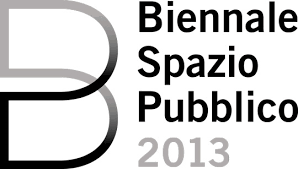 The initiative originated in 2011, with the first edition, with the intent of the concluding event becoming a regular event to reflect on the theme of public space. The Biennial is constantly monitoring and evaluating projects and activities, analyzing new question and issues that emerge in the background of a city and in a society that is continuously transforming itself.
The initiative originated in 2011, with the first edition, with the intent of the concluding event becoming a regular event to reflect on the theme of public space. The Biennial is constantly monitoring and evaluating projects and activities, analyzing new question and issues that emerge in the background of a city and in a society that is continuously transforming itself.
The first edition of the Biennial was an opportunity for the discussion on a variety of topics that relating to public space and the implications from different dimensions.
The second edition was titled the ‘Evidences of City’ since it underlines the need for operational ideas on the draft public spaces creating urban renewal and the rehabilitation of the existing infrastructure for environmental and social sustainability, citizenship and the participation of the citizen in the management of the collective goods through social creativity.
What distinguished the second edition was the size of the case, resulting in a three day long concluding event.
The journey in the municipalities of Good Practice showed the importance of professional resources of municipalities who were able to succeed despite of financial constraints, promoting and implementing innovative initiatives essential for the improvement of urban public space and promoting social inclusion.
The participants involved in the event were designers, researchers, students, and associations of active citizens on current issues.
The project discussed is called “The City We Want” that promoted actions including nature to be held in the week between the 5-12 of May in the public spaces of Rome most frequented by citizens. The goal of the project was to raise awareness of the institutions and the citizen’s right to make use of public spaces, particularly on the part of the most ‘vulnerable’, and make use of public spaces.
During the final session of the II Biennial of Public Space, 18th May 2013, the Charter of Public Space has been adopted.
The document constitutes the contribution of the Biennial of Public Space to a process of further definition of the same subject area that will be conducted at the global level in collaboration with the United Nations Programme on Human Settlements (UN-HABITAT), in order to make a significant contribution to the Third Conference of the United Nations on Human Settlements (Habitat III) to be held in 2016.
To read the Charter of Public Space, click here
By Paulina Ortiz
